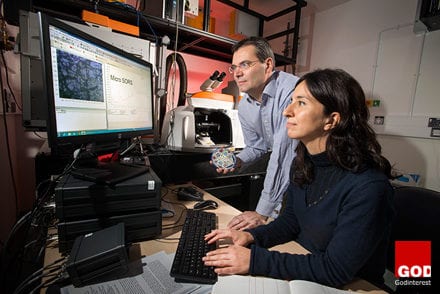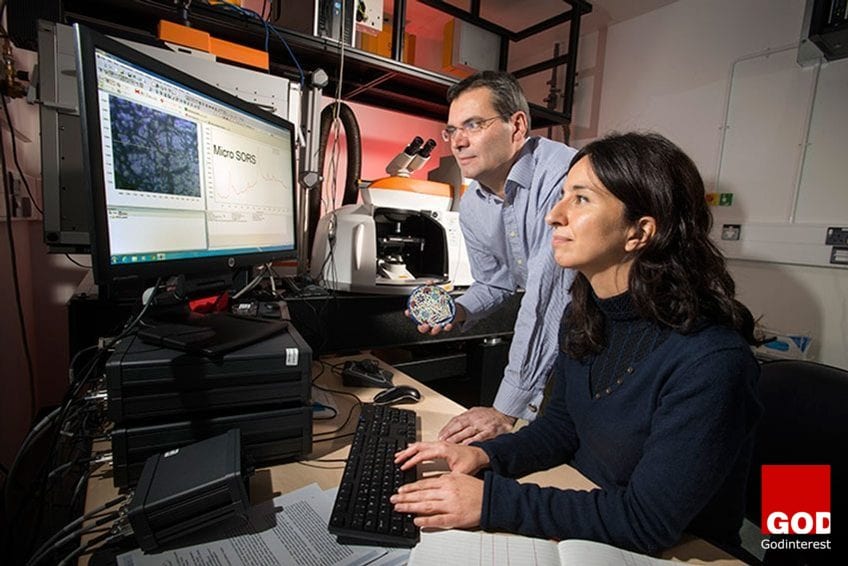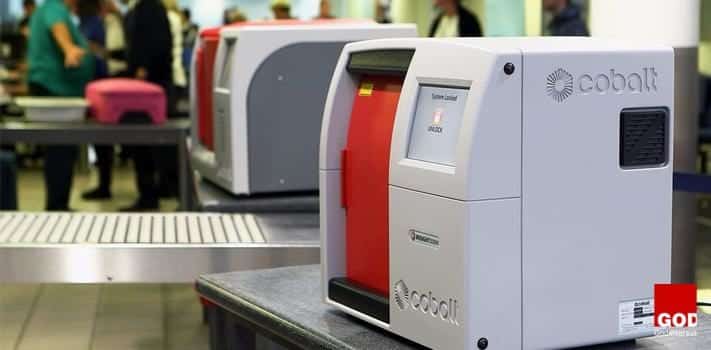It breaks my heart that the spiritual gifts don’t seem to be taught or emphasized much throughout Christendom these days. Their utilization is critical for the Church to function properly in society.
Paul taught, “We have different gifts, according to the grace given us… let [us] use [them] in proportion to [our] faith,” Romans 12:6.The spiritual gifts are found in three separate passages in the New Testament (Romans 12; 1 Corinthians 12—14; and Ephesians 4). The lists are not exactly identical. Some overlapping occurs. According to 1 Corinthians 12:6, God the Father pours in the power, Jesus the Son assigns the ministry, and God the Holy Spirit gives out the gifts as He deems necessary for the proper functioning of the church body.
The gifts may be organized in several ways. We will use the most common grouping.
Establishing Gifts (Ephesians 4:11 and 1 Corinthians 12:29): Apostles, Prophets, Evangelists, and Pastor-Teachers. These gifts are used primarily for planting and growing churches.
Supporting Gifts (Romans 12:6-8): Prophecy, Service, Teaching, Encouragement, Giving, Administration/Leadership, and Mercy. These gifts are used primarily to organize and administrate the church so that it may best carry out its responsibilities.
Ministry Gifts (1 Corinthians 12:8-10, 27-31): Wisdom, Knowledge, Faith, Healing, Miracles, Prophecy, Helps, Administration, Leadership, Distinguishing Spirits, Speaking in Tongues, and Interpreting Tongues. These are the tools that the Holy Spirit utilizes for the ongoing ministry of the church.
It goes without saying that congregations are spiritually impotent when the members do not freely and responsibly allow the Holy Spirit to manifest God’s ministry and power through the gifts He has given. Here are a few guidelines on how to identify and unwrap your spiritual gift(s).
#1 — “Can I lose a spiritual gift (such as by my sinning) once I have received it at the time of my salvation?”
There is simply no evidence that a spiritual gift is ever taken from a believer. It was a “grace gift”, and unless God takes His gifts back, then we will always have our gifts. Now, the gift might not be used as a person is living sinfully and selfishly, but it remains our gifts. We are stewards of all that God has given us including our spiritual gifts, and, as with our money and opportunities, we will give an account as stewards at the Judgment Seat of Christ (see 1 Cor. 4:1-5).
#2 — “Can I asked God for other spiritual gifts, if I believe that I don’t have a particular gift?”
It is unlikely that we should ask for additional gifts. Keep in mind that the all-knowing, sovereign Holy Spirit decided who would get what gifts. The Spirit knew your life and where you would go and what believers you would be in contact with, and gave you those gifts to cover all those settings. So unless He missed something (which is not going to happen), we should trust His choices. Quite often 1 Corinthians 12:31 is appealed to as evidence that we are given permission to ask for additional gifts. But if you read the context carefully (12:11-31), it will be seen that Paul is talking to the church and not to individuals when he says to seek the “better gifts”. He is exhorting them, as they gather together as a church, to look for the gifts that are designed specifically to edify believers. These gifts are the ones which are “better” for the spiritual maturing of believers and should dominate the public services. Some of the sign gifts, such as tongues and miracles, do not directly edify believers and so should not play a significant role at the church gatherings. But people with such gifts as teaching or exhortation should be given a priority when the church comes together; they have the “better” gifts for the edifying of believers.
#3 — “Can unbelievers have spiritual gifts?”
The short answer is “no”. While they might initially appear to have a certain gift, such as teaching, they do have that “version” of teaching that can edify the Body of Christ. They could well have a natural ability which came to them at their physical birth, but they have not had a spiritual birth and so have not been anointed as a believer-priest by the Holy Spirit. What they have might resemble the spiritual gift, but usually a closer inspection allows us to see that what they have is not one of God’s spiritual abilities.
#4 — “What is the relationship, if any, between my spiritual gift and a natural ability that I might have?”
To the believer in Jesus, God has given both natural abilities as well as spiritual gifts. We have been “packaged” by God to be able to serve Him and live for Him in a wonderful way. We believe that He intends for these natural abilities and spiritual gifts to be wedded together. For example, a person might have natural musical ability, and they might also have the spiritual gift of encouragement. We can easily see how God might use this person to encourage and challenge fellow believers through their musical abilities.
#5 — “Must I wait for the Spirit’s “moving” on me to use my spiritual gift.”
No, the gift was given to you by the Spirit and it “belongs” to you. It is now part of your stewardship responsibility and thus you are in charge of it. As Paul put it, “the spirit of the prophets is subject to the prophets.” In other words, you determine when and how you will use your gift. And you are responsible for using it and will eventually give an account to the Giver for our use of it. Of course, the Spirit can give us direction in using it, just like He can in using our/the Lord’s money in our giving to others.
#6 — “Can a believer be living in unconfessed sin and still use his/her spiritual gift in a way that shows results?”
Unfortunately, believers can use their gifts even when out of fellowship with the Lord. It should not be this way, but sometimes it is. For example, a pastor with the gift of pastor/teacher might effectively open the Word of God on Sunday mornings to his congregation with the result that many are built up by the Word. They are clearly benefitted with the pastor’s ability to make the Scriptures understandable. And yet, he might at that very time in his life be involved in immorality, which could go on for some time. But usually in this life, as well as at the Judgment Seat of Christ, the matter will be dealt with. What we need to keep in mind is that the “fruit of Spirit” and the “gifts of the Spirit” are two different things. The “fruit” shows where we are in our spiritual maturity and relationship with the Lord, while our gifts are simply those abilities (capacities) that have been given to us. They both should, of course, be part of our lives as believer-priests of Jesus Christ.
#7 — Are all spiritual gifts permanent and for today or are some of them temporary, really just for the first days of the church?
There does seem to be evidence that some spiritual gifts were designed to be temporary, being needed in the early days of the early church. But to answer the question about any particular gift, there are two things that must be considered. First, what is the gift; that is, how does the Bible define it. It is not what we say it is, it is what the Bible says it is. For example, the gift of “apostle” is seen as a foundational gift for the church (Eph. 2:20). Apostle were ones “sent with authority” by Christ; that is, they had the ability to work miracles to validate their new message (see 2 Cor. 12:12). So, unless someone can “on demand” work miracles then that one is not an apostle. And while some claim to work miracles, the evidence does not support their claims. This points to the temporary, foundational nature of the gift of apostle. But if “apostle” is defined loosely as “one who is sent”, such as a missionary, then you would argue for their presence in the church today. But this looser definition fails to include the all-important aspect of authority. Second, what is the reason why God gave the gift. Its purpose must be understood. Lack of clarity in seeing the purpose will always breed lack of clarity in answering the question, “was the gift temporary or permanent”? For example, healings were done to authenticate God’s message and messenger (see Jesus’ point in John 5:36 about His miracles). They were not done primarily to compassionately heal people (remember that everyone healed in the NT is now dead, so the healing didn’t last). Once God’s message (the Scriptures were authenticated) the gift of healing/miracles was not needed. (God can, of course, heal anytime He wishes, but that is different from a human being having the gift of healing/miracles).
This is a short answer, but the point is that the evidence is that some gifts are no longer needed today because the purpose for them is not in existence today. (See the question on the gift of tongues in a separate discussion).
#8 — How do I find out what gift(s) I might have?
We must assume that God is not playing “hide and seek” with us. He wants us to know, so it would be important to ask Him. So pray. Second, when we have a gift it will soon be evidenced with “results” and a personal “passion” that we have when operating in the area of our gift. So, seek ministry/service opportunities in your church, noting where you seem to be most effective. Third, speak to believers that know you and that are spiritually mature and ask them what they see in you related to your spiritual gifts. Often, they will agree on what is evidenced in your life of service. But even if it does not become immediately clear what your gift(s) are, serve Christ. Soon you will come to see what your gifts are.











